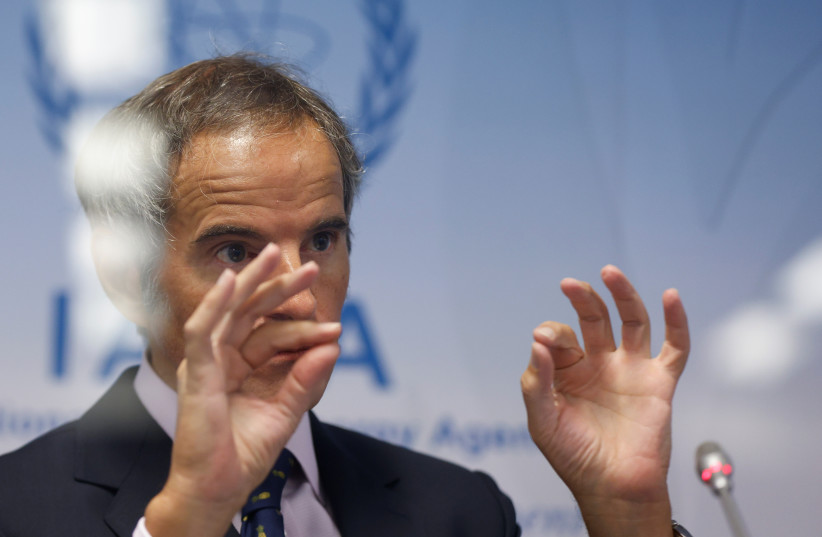Whether or not the ongoing negotiations in Vienna and other capitals to revive the nuclear agreement end with a new formula, the Middle East is on the verge of a new phase in time, the most visible and dangerous, in which will be the expected progression of Iran’s role in the region. Indeed, Iranian expansion in a number of Arab countries is seemingly nothing new.
But now the region teeters on the brink of a new phase of this expansionist project. The Iranian regime is aware of the limits of the United States’ ability to deal with its threats. It also knows exactly how it will respond to any US military attack on pro-Iranian militias in some countries in the region.
The fear factor has fallen, and retaliation and counterattack have become frequent features of US-Iranian relations. This in itself is a qualitative development that matters to Tehran, with all that implies for Iranian strategy planning. Clearly, Iran is not negotiating nuclear capabilities at this time.
The issue is being decided not only on the basis of assessments by specialized experts in Israel and the West but also on the basis of high-profile views suggesting that Iran’s nuclear capability is only a political decision away. The US is well aware of this.
But Tehran is negotiating for maximum strategic benefit, even though the negotiating agenda itself is a big win for it – no mention of the missile program and drones that have become a real threat to everyone, including the West (there is an agreement on Iranian drones commissioned by Russia to bolster its operational capabilities in Ukraine), and Iranian expansionist policies that limit debate on the nuclear program, too intractable even for the IAEA.

The riddle in dealing with Iran is not Iran itself, but the Biden administration’s strategy toward it, whether through negotiations or military action (in response to threats to US forces and interests in Syria, Iraq and elsewhere). Prolonging negotiations has walked the White House into a trap. The midterm congressional elections are only a few weeks away.
This is the same strategy the Iranians used with former president Barack Obama when negotiations lasted several years until Obama was finally forced to sign the current disastrous version of the agreement before his second term was up. Ultimately, we are facing a new Iranian phase, whether the nuclear agreement is revived or not. Either way, the Middle East will perceive Iran differently.
It will probably support even more sectarian militias loyal to it. It is trying mightily to reap the rewards of its expansion in Yemen, Iraq, Syria and Lebanon in recent years. The calm tone it strikes in relations with its neighbors in the region is likely to grow stronger.
Will Iran allow for concessions?
POLITICAL CONCESSIONS by Iran in the region’s affairs are hard to imagine. The exact opposite is to be expected. The Iranian regime considers the transformation of the international system to be entirely in its interest.
This is one of the motivations for the ongoing negotiation maneuvers in Vienna. It also recognizes the decline of US strategic interests in the region and the deterioration of Washington’s relations with its traditional allies in the Middle East. Iran has tested the strength of this alliance more than once in the past two years.
And yet Washington has done exactly what the Iranian side expected. We have seen in recent days how harshly Iran’s President Ebrahim Raisi has spoken about Israel. He has even threatened Israel with total annihilation if it undertakes attacks on Iran’s nuclear facilities.
These are threats that are made over and over again by the hardliners of the Islamic Revolutionary Guard Corps (IRGC). But that was relatively far from the tone of the Iranian president’s rhetoric, which has become aggressive, harsh and heedless of Washington’s anger at this very sensitive time. Also, everyone in our region should not ignore the impact of the European rush on Iran to calm the energy markets.
We need to imagine how Tehran can use all this to its advantage by using its long experience in negotiations with Western diplomats from different political spectrums and orientations. The Iranians know very well that President Joe Biden will not risk another war against them for the rest of his term.
They also know that Israel will think twice about a military strike against them because it is not sure it would receive clear and strong US support. This is unlikely, especially if the formula for a new nuclear agreement is reached. So they will continue and expand their deployment plan in Syria, and they will go on with their support of factions and militias.
Tehran also knows that time is in its interest. The tough international reality is an ideal opportunity to achieve what it wants regionally and abroad. This partly explains the harshness with which it is responding to Israel’s actions and the rest is yet to come.
So the most pressing question is which scenario is best for our region: a revival of the nuclear agreement or the failure of the ongoing negotiations. The answer is that the two outcomes are similar and there are few differences in the level of Iranian behavior.
But the revival of the agreement seems to be the best and even the optimal scenario for Iran in terms of the great strategic benefits to be expected: the neutralization of the West to taking a back seat and looking for solutions to its crises, and benefits in its regional conflict, with all the negative consequences that this implies for the crises and problems of the Middle East.
The writer is a UAE political analyst and former Federal National Council candidate.
